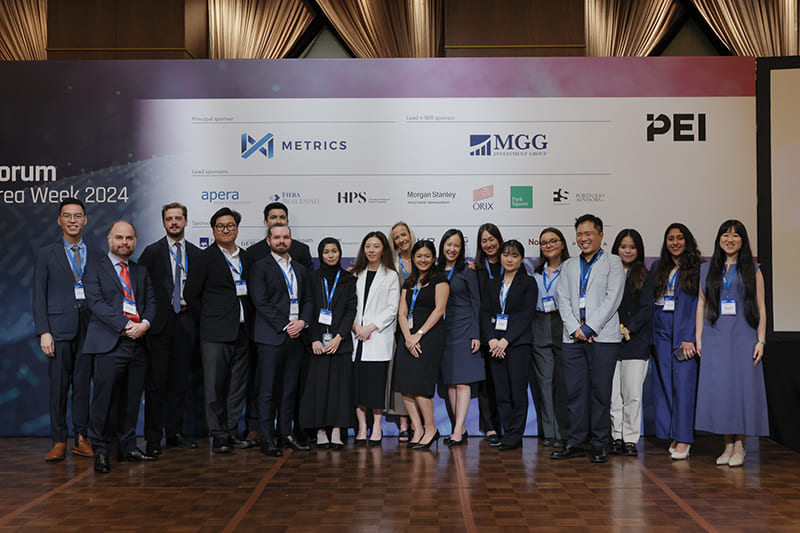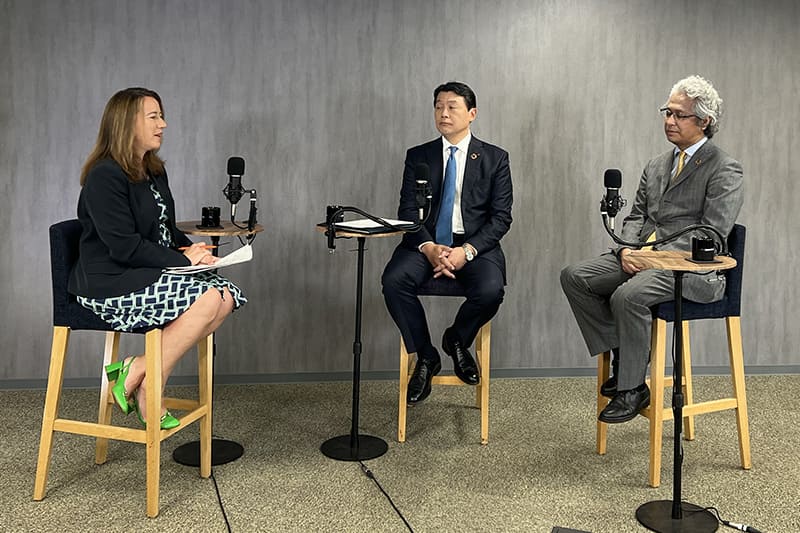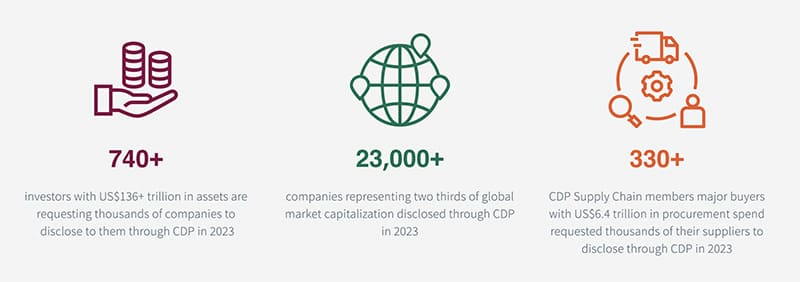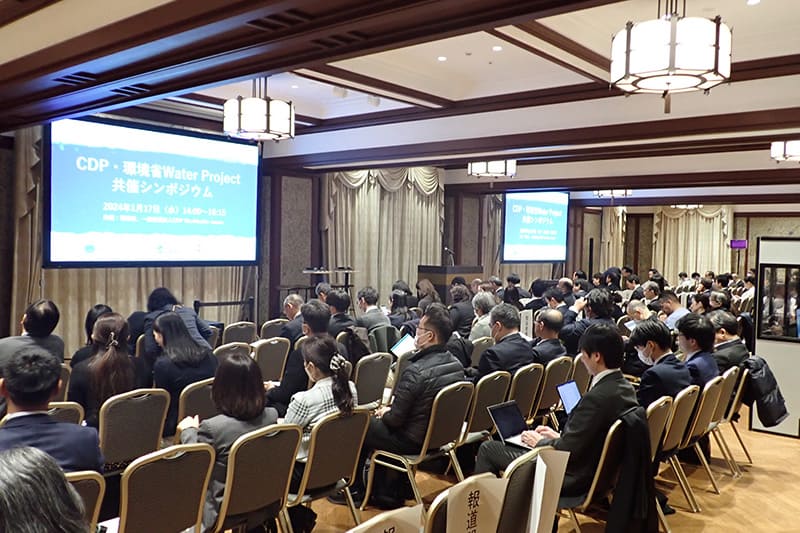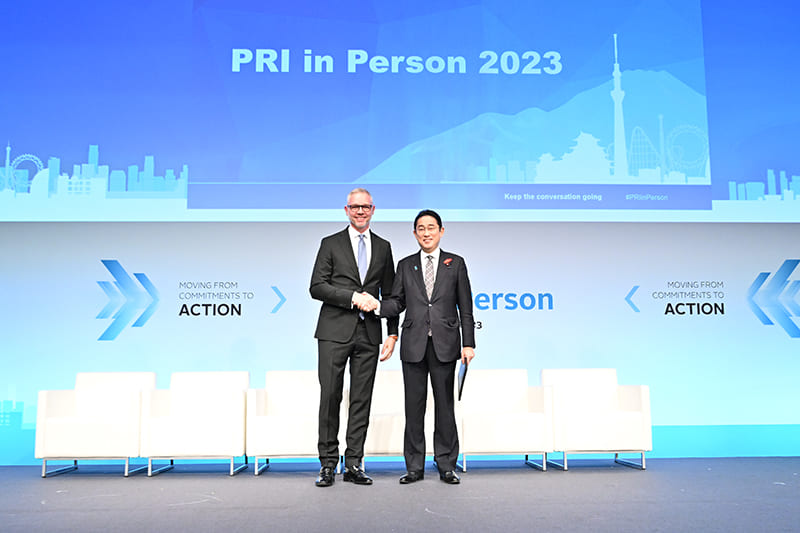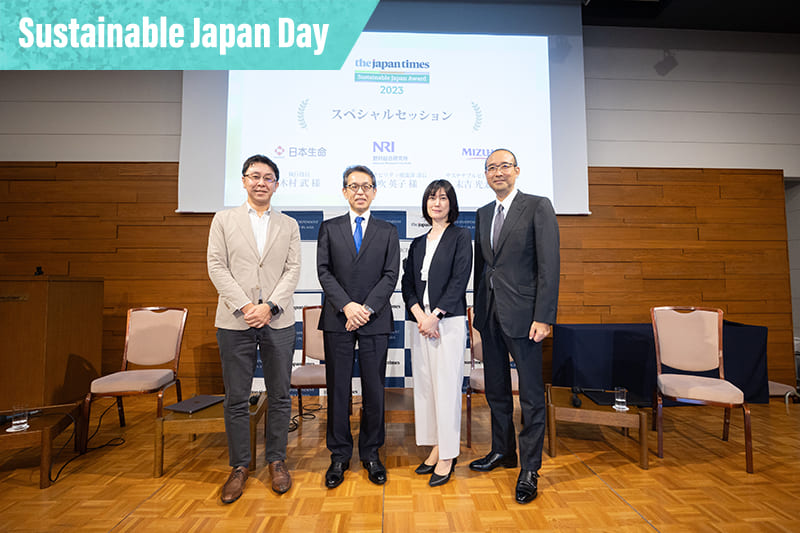June 16, 2023
To measure ecological impacts, companies first need good rulers
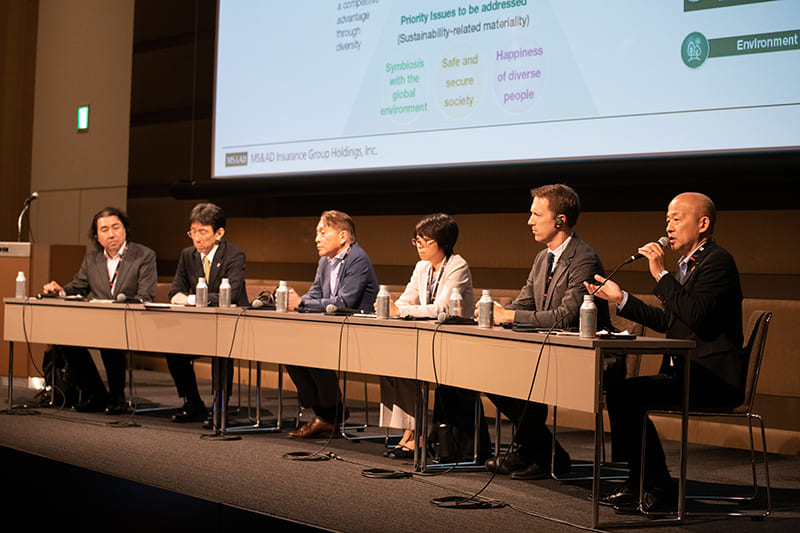
How do big businesses reflect their impact on nature in their financial reporting? One of the sessions on the second day of the Responsible Investor Japan 2023 conference, May 25, focused on the challenges faced by companies whose business uses natural capital.
Companies are under increasing pressure to disclose risks and opportunities stemming from their ecological and climate impacts as people grow more concerned about overconsumption of natural resources that harms the diversity of wildlife and destroys ecosystems. According to a 2022 report by the World Wildlife Fund, global populations of mammals, fish, birds, reptiles and amphibians have declined 69% on average since 1970.
The Taskforce on Nature-Related Financial Disclosures, a U.N.-supported global organization that promotes sustainable business, in 2022 released a draft framework on nature-related risk management and disclosure to prompt corporations and financial institutions to take steps to report their impacts. The TNFD is slated to publish the final version in September.
At the session “Bringing the Biodiversity Challenge Into the Mainstream,” panelists discussed how to manage biodiversity risks and how to collect reliable data for assessing them. Olivier Trecco, the head of ESG solutions for ASEAN, Japan and Australia at S&P Global Sustainable1, warned of the current speed and scale of biodiversity loss and ecosystem degradation and said it is the fourth urgent item on the agenda for the world to tackle over the next years, following climate change, failure to adapt to it, and natural disasters and extreme weather.
The first issue pointed out by panelists was the traceability of raw materials and other components of products, especially those that are not core to companies’ supply chains.
“For example, food companies know where the main materials of their products come from, such as tea leaves, cacao and coffee beans, and they have an impact on the producers. But if they are commodities, such as sugar and palm oil, it is hard for them to trace the distribution routes,” said Junichi Adachi, the sustainable value service advisory lead partner for the consultancy KPMG in Japan. “They don’t know where they come from or where they are produced.”
Moreover, food makers often need to track their sources to specific farms or ranches, which are much smaller than the areas that biodiversity assessments usually involve, and so it is harder for companies to specify their biome, Adachi added.
While traceability across national borders is a big problem for some companies, others have issues involving dependency on existing ecosystems.
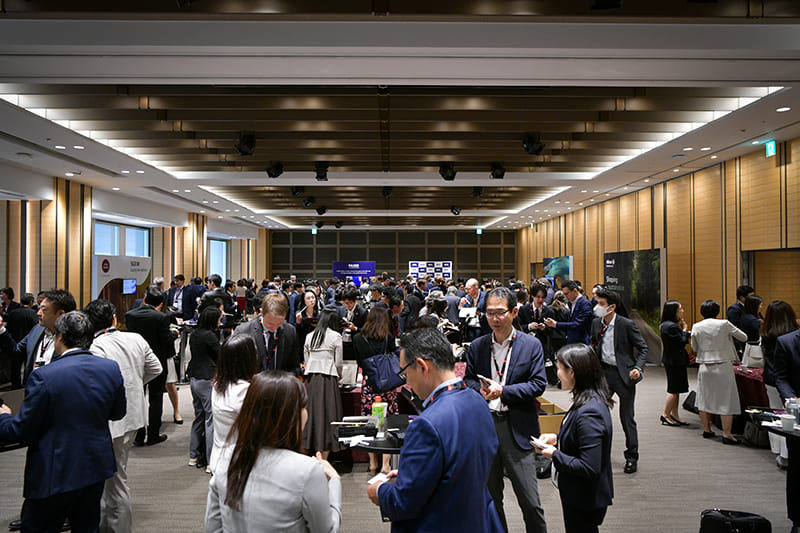
In the water-intensive chemical industry, for example, less than 60% of companies disclose the amount of water they draw from natural resources, which is the bare minimum that needs to be reported, said Yukie Shibano, executive director for ESG and climate research at the market index company MSCI.
Panelists reiterated difficulties associated with data collection from other countries. Although some Japanese startups specialize in collecting data related to biodiversity, they often focus solely on Japan. “What we need is global data,” said Makoto Haraguchi, senior vice president for the sustainability section in the MS&AD Insurance Group.
Haraguchi, who is also one of the 40 senior executives at the top of the TNFD, pointed out a series of problems he often finds when corporations try to gather data to assess their global ecological impacts. Such data often has limited accessibility, and even if they can get it, some of it is irrelevant for business analysis purposes. Also, different countries cover different data and update it with different frequencies. Since all this makes it hard to evaluate business risks, Japanese startups and academia need to join global discussions to find solutions, he said.
Haraguchi also said that the TNFD hopes there will be a one-stop global platform where investors can find nature-related data from companies and their supply chains, and that such steps will require support from governments.
Another panelist maintained that any kind of index that can be used to gauge aggregated biodiversity impacts is necessary, at least temporarily. “From a financier point of view, without any indices to aggregate all data, it is hard to formulate a national goal and check how much each nation achieves the goal,” said Hirotaka Hideshima, the counselor on global strategy to the president and the board of directors at Norinchukin Bank. He is also one of the TNFD members.
At the closing of the session, Adachi of KPMG said corporations and financial institutions need to set priorities in gathering data and analyzing positive and negative impacts, as a wide range of factors affect species and ecosystems. For example, soil loss due to deforestation and mining, the harvesting of minerals from seabeds, and marine and air pollution all do damage to terrestrial and sea habitats.
“Since this is a very difficult task to do, corporations need to make a consensus with investors to adapt an approach to first start working on at least a portion of their business with a high priority,” Adachi said.

